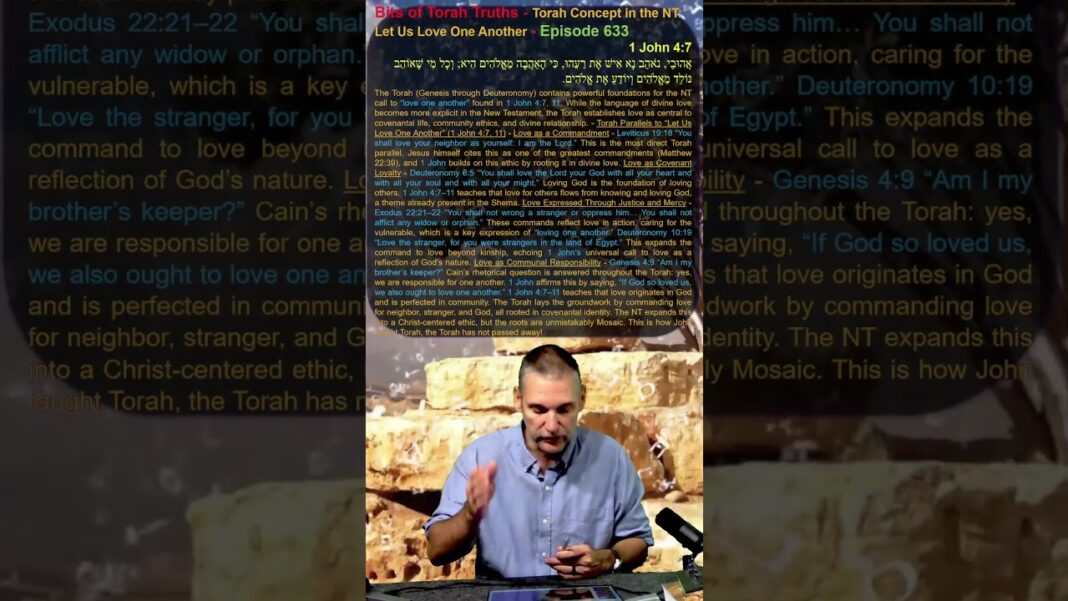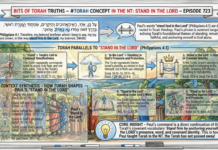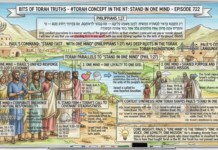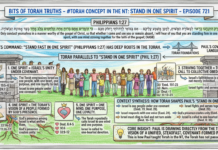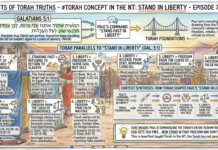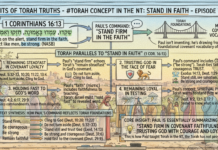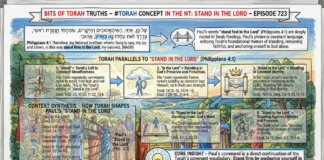Bits of Torah Truths – Torah Concept in the NT: Let Us Love One Another – Episode 633
1 John 4:7
אֲהוּבַי, נֹאהַב נָא אִישׁ אֶת רֵעֵהוּ, כִּי הָאַהֲבָה מֵאֱלֹהִים הִיא; וְכָל מִי שֶׁאוֹהֵב נוֹלַד מֵאֱלֹהִים וְיוֹדֵעַ אֶת אֱלֹהִים.
1 John 4:11
4:11 אֲהוּבַי, אִם כָּכָה אָהַב אוֹתָנוּ הָאֱלֹהִים, גַּם אֲנַחְנוּ חַיָּבִים לֶאֱהֹב אִישׁ אֶת רֵעֵהוּ.
#torah #torahwisdom #torahtruth #torahforlife #torah4you #torahtruth
1 John 4:7
4:7 Beloved, let us love one another, for love is from God; and everyone who loves is born of God and knows God. (NASB)
1 John 4:11
4:11 Beloved, if God so loved us, we also ought to love one another. (NASB)
https://www.matsati.com/index.php/category/bits-of-torah-truths/
The Torah (Genesis through Deuteronomy) contains powerful foundations for the NT call to “love one another” found in 1 John 4:7, 11. While the language of divine love becomes more explicit in the New Testament, the Torah establishes love as central to covenantal life, community ethics, and divine relationship. – Torah Parallels to “Let Us Love One Another” (1 John 4:7, 11) – Love as a Commandment – Leviticus 19:18 “You shall love your neighbor as yourself: I am the Lord.” This is the most direct Torah parallel. Jesus himself cites this as one of the greatest commandments (Matthew 22:39), and 1 John builds on this ethic by rooting it in divine love. Love as Covenant Loyalty – Deuteronomy 6:5 “You shall love the Lord your God with all your heart and with all your soul and with all your might.” Loving God is the foundation of loving others. 1 John 4:7–11 teaches that love for others flows from knowing and loving God, a theme already present in the Shema. Love Expressed Through Justice and Mercy – Exodus 22:21–22 “You shall not wrong a stranger or oppress him… You shall not afflict any widow or orphan.” These commands reflect love in action, caring for the vulnerable, which is a key expression of “loving one another.” Deuteronomy 10:19 “Love the stranger, for you were strangers in the land of Egypt.” This expands the command to love beyond kinship, echoing 1 John’s universal call to love as a reflection of God’s nature. Love as Communal Responsibility – Genesis 4:9 “Am I my brother’s keeper?” Cain’s rhetorical question is answered throughout the Torah: yes, we are responsible for one another. 1 John affirms this by saying, “If God so loved us, we also ought to love one another.” 1 John 4:7–11 teaches that love originates in God and is perfected in community. The Torah lays the groundwork by commanding love for neighbor, stranger, and God, all rooted in covenantal identity. The NT expands this into a Christ-centered ethic, but the roots are unmistakably Mosaic. This is how John taught Torah, the Torah has not passed away!
